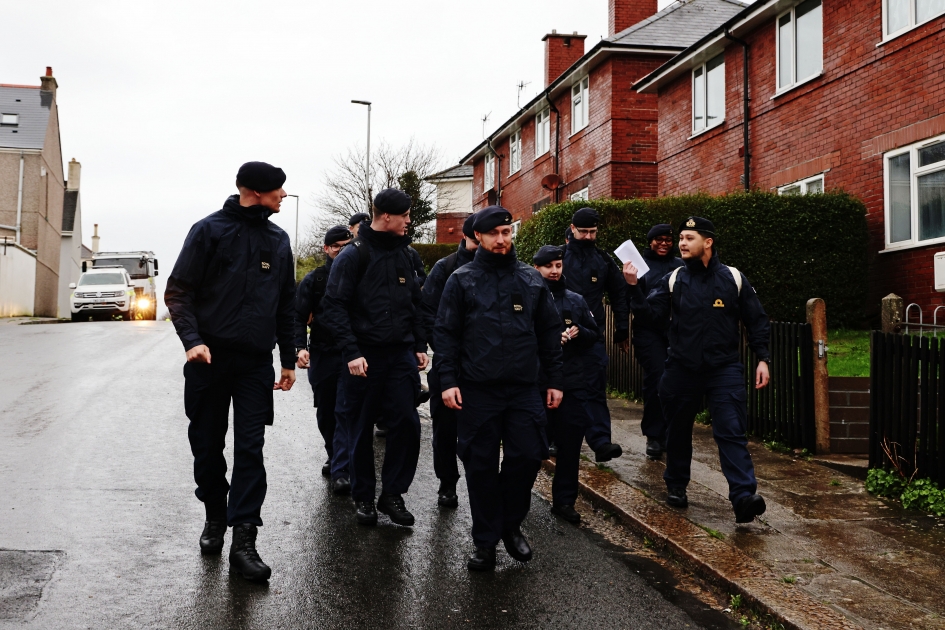A 500kg (1,102lb) German World War Two bomb that forced the evacuation of thousands of people in Plymouth has been detonated at sea, according to BBC.
The unexploded device was found in a garden on St Michael Avenue on Tuesday, sparking four days of disruption.
On Friday police closed roads and rail and bus services were stopped as the bomb was transported 1.4 miles (2.3km) through the city's streets.
The device was taken by boat beyond the breakwater and detonated at 21:51 GMT.
No further details of the disposal have been given.
Earlier on Friday, Lt Col Rob Swan said the bomb would be taken to a depth of at least 14 metres (46 feet) before a diver would place a charge on the bomb to ignite it.
The disposal of the device marks the end of huge disruption for thousands of people living in Plymouth.
A temporary 300m (984ft) cordon was put in place on Friday afternoon to allow experts to transport the bomb from the Keyham area of the city in a military convoy to the Torpoint Ferry slipway.
Plymouth City Council said 10,320 people and 4,300 properties fell within the cordon.
Residents in the area were asked to leave their homes for about three hours from 14:00 GMT as a safety precaution.
A number of roads were closed and rail and bus services were stopped as the bomb was transported through the city.
The cordon was lifted shortly after 17:30.
Plymouth City Council leader Tudor Evans thanked everyone involved in the removal of the bomb.
He said it had brought out a "war-like spirit" in the city.
"I think it is fair to say that the last few days will go down in history for Plymouth," Mr Evans said.
"This war-time bomb has really brought out war-time spirit, people coming together to really support each other and whilst it has been really tough - we got through it."
The council said the Life Centre leisure centre had been used as an emergency rest centre for people who had been evacuated.
Defence Secretary Grant Shapps praised the "bravery and fortitude" of those involved in the "highly complex operation" and the "patience and cooperation" of members of the public.
In a statement on Friday, he said: "I would like to express my thanks to all our personnel... who worked both night and day this week to keep the public safe and minimise the risk of damage.
"The success of this operation is testament to the level of skill and expertise across our Armed Forces, as well as the bravery and fortitude of our personnel when faced with high-risk situations and working under extreme pressure."
The MoD said about 30 of the Armed Forces' most experienced bomb disposal specialists worked around the clock since Tuesday to assess the condition of the bomb.
Staff at The Box, a cultural space and museum in the city, believe the explosive fell during one of the heaviest nights of bombing in World War Two.
Using "bomb maps" from the war, the museum said it was dropped on 22 or 23 April, 1941. According to the museum, some 1,362 bombs exploded in the city during the war.


















